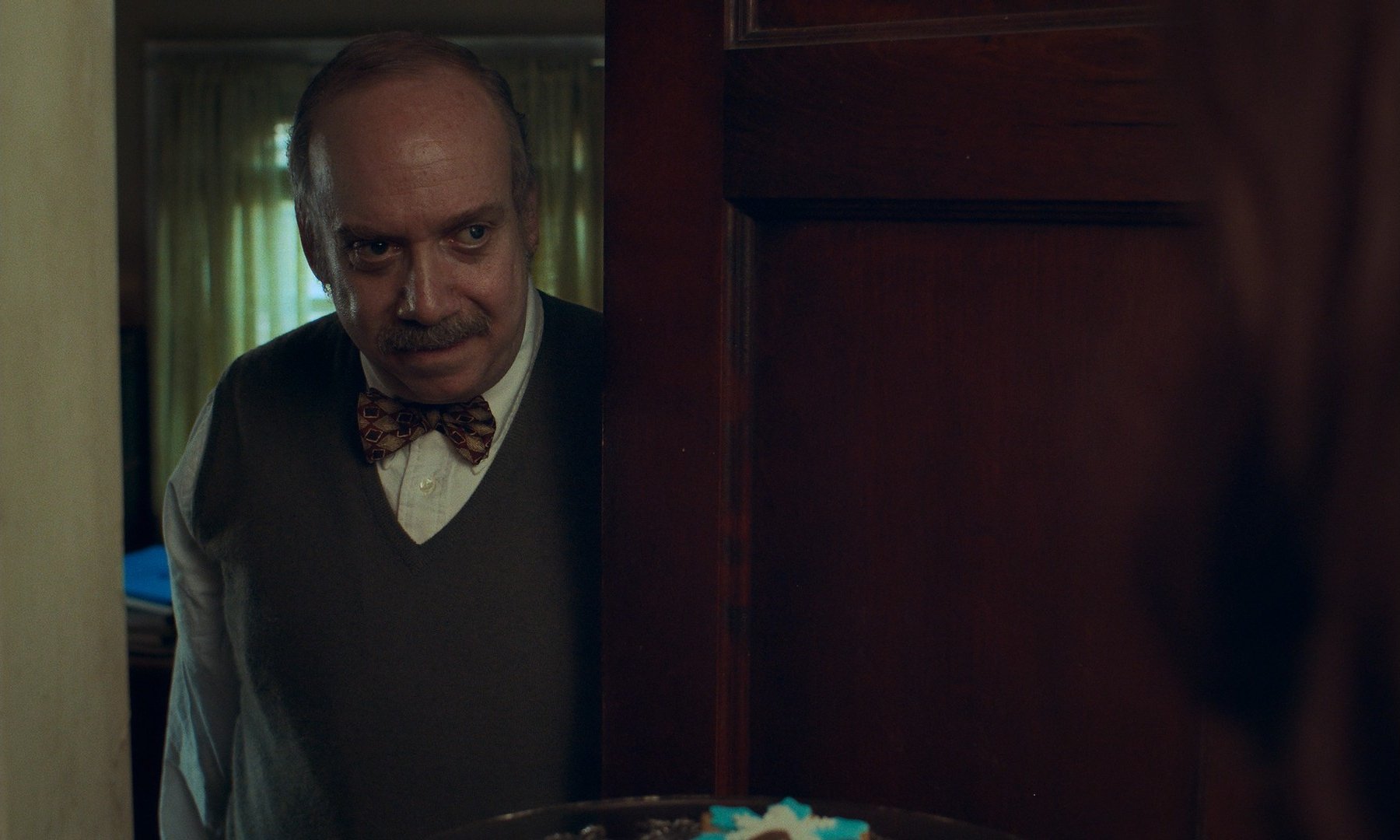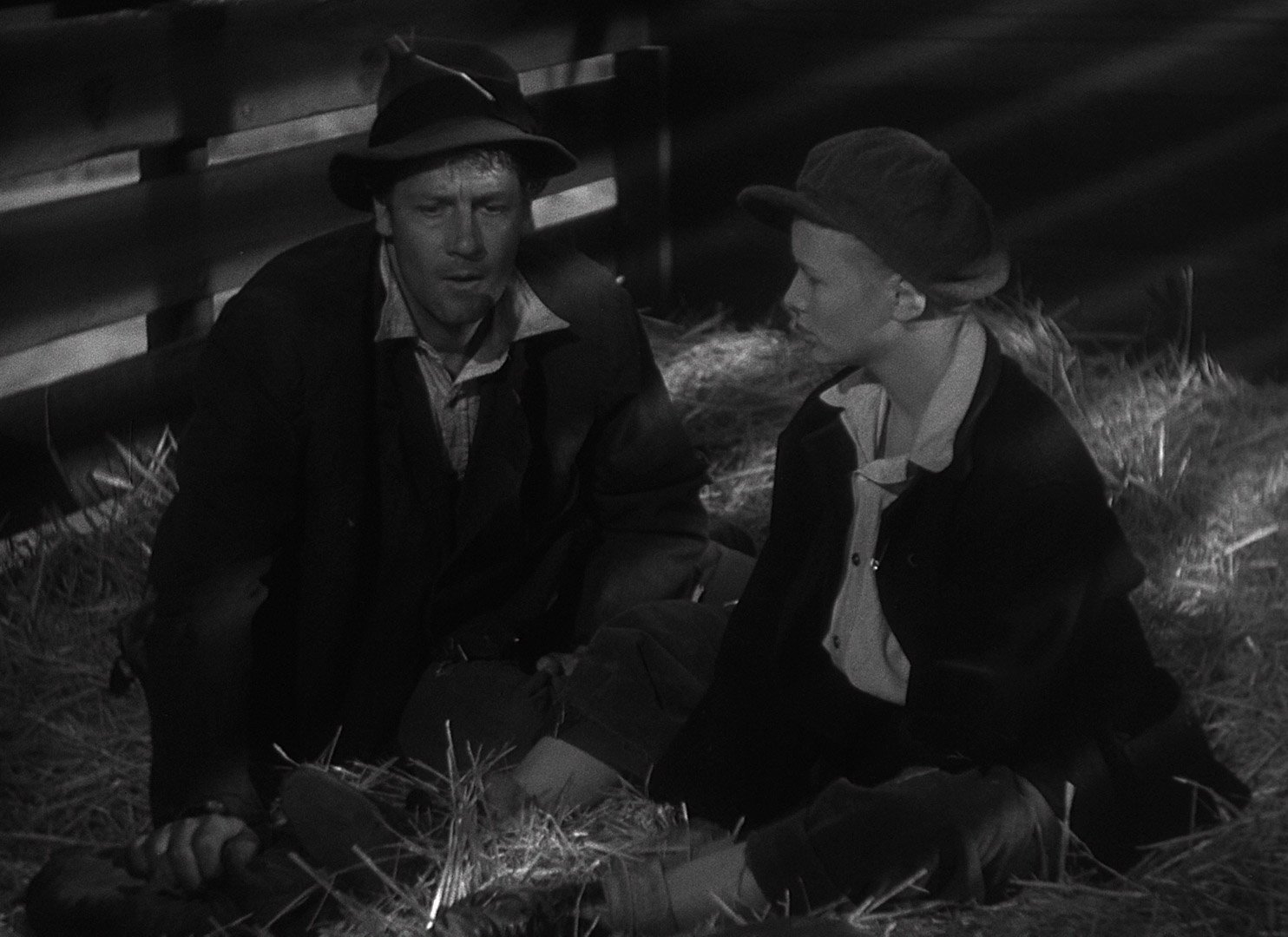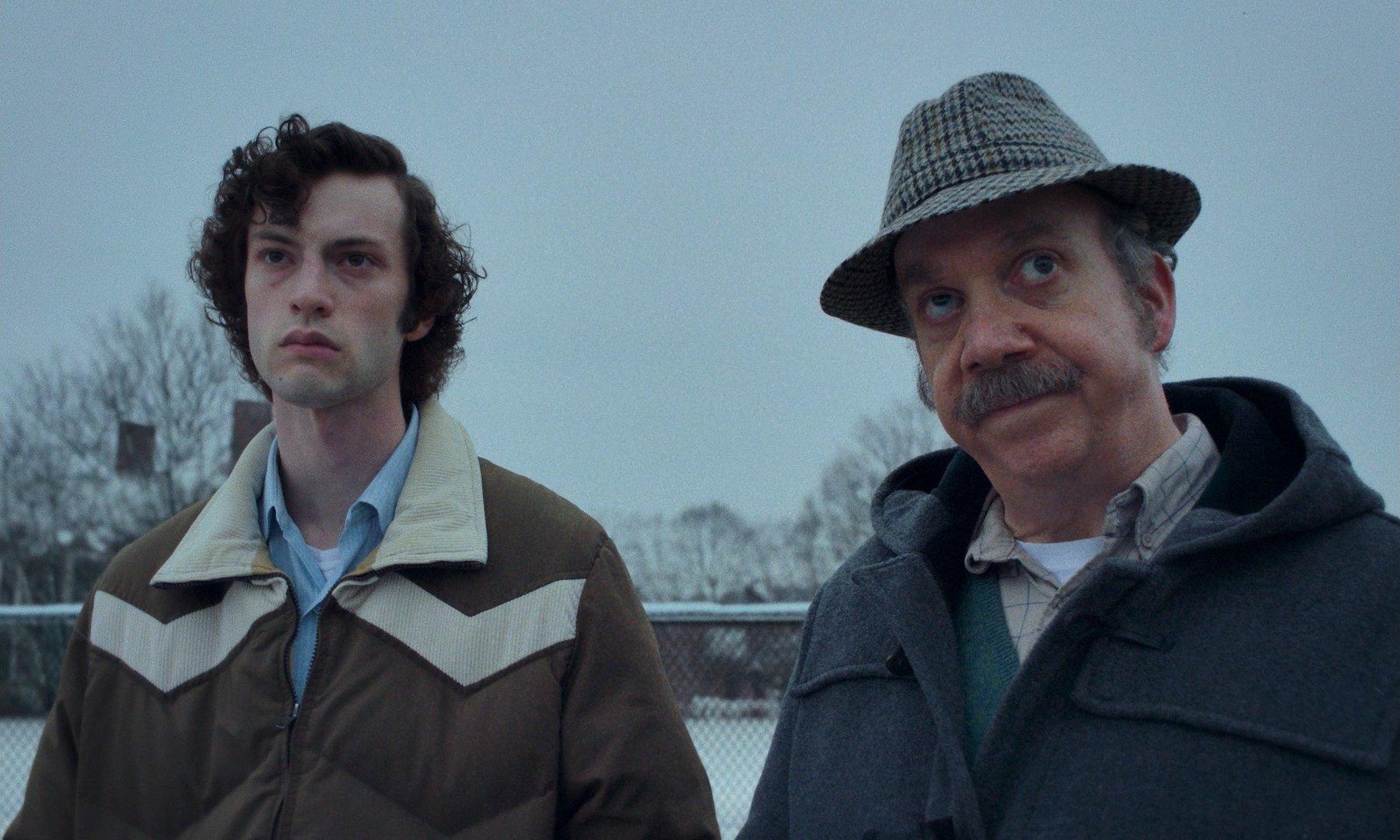The Holdovers (2023)
QFS No. 133 - This is our first selection of an Alexander Payne film, one of my favorite contemporary filmmakers. I’ve seen nearly all of his films, hence its exclusion from the QFS Priority Selection List since I’ve seen nearly all of them. Truly one of the great living screenwriters, a modern auteur.
QFS No. 133 - The invitation for February 21, 2024
This is our first selection of an Alexander Payne film, one of my favorite contemporary filmmakers. I’ve seen nearly all of his movies, hence its exclusion from the QFS Priority Selection List since I’ve seen nearly all of them. Truly one of the great living screenwriters, a modern auteur.
The first Payne film I saw was Election (1999) at an advance screening in Ann Arbor* while I was in my first screenwriting class. Our professor took us to see it at the State Theater and the film didn’t even have the final credit scroll yet. I saw it a second time at the Michigan Theater during its regular release later that year and it remains one of my favorite viewing experiences – the film brought the house down, especially after one line in particular. Exemplary satire, Election is an underrated modern classic and should have earned Reese Witherspoon at least an Oscar nomination, one of a litany of Oscar Crimes™ over the years (see 2023: Gerwig, Greta).
Payne’s Sideways (2004) not only won him his first Oscar for Best Adapted Screenplay but also single-handedly made Santa Barbara Wine Country overcrowded, drove up the demand for pinot noir production and consumption and destroyed the reputation of the perfectly fine merlot grape. His Nebraska (2015) is a beautiful, melancholic road trip film. Throw in About Schmidt (2002), and The Descendants (2011) for which he won another writing Oscar, and you could call that a pretty terrific career.
I’m sure I’m not the first one to suggest this, but from the way I see it Payne is the Preston Sturges of our times. Sturges, as you recall from QFS No. 2 The Miracle at Morgan Creek (1944), wrote and directed films about ordinary misfits caught in a lie or a deception – as a fake husband in The Miracle at Morgan Creek, Hail the Conquering Hero (1944) as a fake war hero or Sullivan’s Travels (1941) as a filmmaker posing as a fake hobo – as a way into the exploration of humanity, relationships and society. Both have a similar way of capturing a character’s story through humor, often bittersweet, but with the slightest of social commentary. With Sturges that commentary was a little more overt and daring, and Payne’s mission is not cultural or social criticism necessarily. But you can find it in his authentic portrayal of an ordinary person, his or her sense of normalcy upended.
Sturges might’ve used more sweet than bitter in his cinematic concoctions, and Payne can be acerbic and creates some truly uncomfortable and squirm-inducing scenes. So it’s not a perfect comparison but I stand by the assertion. Regardless, both carved out a particular niche in their eras – auteurs whose works relied upon well-told stories with grounded characters in exquisitely crafted scripts as opposed to artistic or visual innovation. With health doses of humor.
I’m very much looking forward to finally seeing another Alexander Payne film, his first in six years, and having a chance to discuss it with you. Please watch The Holdovers at home or in the theater – still playing somewhere near you I believe – and we’ll discuss!
*Home of the current National Champions of College Football.
Reactions and Analyses:
There’s a moment in The Holdovers (2023) that feels like its heading towards familiar territory. A misunderstood curmudgeon teacher and his misfit students all have to somehow survive the winter together at their private boarding school as they’re stuck with each other until school resumes after the break. With this setup, it’s easy to be prepared for a story in which the students come to understand this man more and the teacher softens and becomes a better person and therefore a better teacher by knowing his students more personally – and everyone learns something about themselves or life that prepares them for the world more than their conventional education ever could.
I’m not trying to sound glib; many an excellent film has done this well and movingly – Dead Poets Society (1989) or The Breakfast Club (1985) come to mind. So that’s the direction Alexander Payne is appearing to veer us towards in The Holdovers.
But then, something happens. All the kids, except for one literally fly away in a helicopter to a mountain top.
What Payne really setting up for is this – don’t expect anything because this movie is not going where you think it is going.
As one of our group members put it, you think it’s going to be a movie about class, but it’s not just that; you think it’s going to be a movie a hardened grump falling in love and being transformed by that, but it’s not; you think it’s about the start of a friendship between a teacher and his student – it’s not that exactly either.
All of those themes are in The Holdovers, to be sure, but just when the narrative goes in the direction you think it’s going to go, it goes somewhere else. That this happened in a film that Alexander Payne directed but did not write – to me, that’s incredibly impressive. He took another script and made it a film that feels very much like his voice.
What Payne has always been good at is making characters feel real, even when they’re a little askew. His characters have believable inner lives, are imperfect, and struggle inwardly but not usually outwardly. What I’ve loved and appreciated about Payne’s movies is that they have a very distinct comedic edge but they’re truly dramas. I empathize with the characters in his movies because they seem so much like humans with familiar struggles.
The Holdovers caused me to experience something new for me in a Payne film – it made me well up with tears several times. Angus (Dominic Sessa) meets his father (Stephen Thorne) in a mental institution, they hug and Angus tells him he misses him. His father, seemingly moved, can actually only reply that he believes the institution’s staff is poisoning his food. And then you realize that Angus is truly alone and in deep need of love and encouragement. When Mary (Da’Vine Joy Randolph) breaks down at the party about the loss of her son, you feel it deeply, as if she’s been holding it at bay for so long and finally lets her grief go.
Topping off all them, however, is the end. The handshake between Angus and Paul (Paul Giamatti). There is perhaps more power, more earned emotion in that handshake than in any number of romance films or romantic comedies’ climactic kisses. And importantly, it’s not a hug – it would’ve been ruined if it was a hug. It would’ve felt fake, like a movie. Because that’s not their relationship. They’re still teacher and student. They went through a journey together, learned each other’s deepest held secrets, have changed and grown to see each other as lonely, suffering, resilient human beings. And that handshake holds it all, with Paul’s cracking voice and Angus hearing from his teacher – a sort of surrogate father role – that the kid is going to be all right. That’s all Angus needed in his journey, was someone to tell him that. And it was earned, narratively, and paid off in the right way.
In the invitation to this week’s selection, I mentioned Payne as our era’s Preston Struges. And I think this film helps bolster that case. Let’s set aside how both auteurs deftly use comedy to tell a dramatic story in ways both narratively interesting but grounded in truth. There’s also the social criticisms embedded in their films.
Payne addresses class in The Holdovers in several ways but most importantly it’s woven into the DNA of the main character Paul. When we learn about his backstory, Paul reveals he was kicked out of Harvard because of allegations of plagiarism by the son of a famous person at Harvard – when it was actually the opposite, the son copied Paul’s work. But the administration wouldn’t have sided with a kid who left his abusive father and extricated himself from poverty and ended up at Harvard through his own means. The fact that he’s cut down by the wall of privilege is devastating in the retelling and is evident in the unresolved grief that Paul contains within.
Similarly, we hear about Mary’s late son who couldn’t get a scholarship to pay enough for college, went off to the army with the hopes of eventually going to college, only to have him die fighting in Vietnam. Mary’s story touches on race too – it’s never said but you know that he was the only Black kid in his class, whose mother worked there just so he could go to school and have a chance.
In all these ways, Payne is making an oblique criticism of the system that rewards the wealthy and well connected, but not through didactic speechifying, but through the story, through the setting, and through the characters. Simply pointing out it exists in the way it exists and portraying it in a way that shows it’s real and not a narrative contrivance is perhaps one of the best ways a filmmaker can illustrate how inequitable things truly are.
Sturges’ social criticisms of a different era centered around poverty and concepts of masculinity/military might. In Sullivan’s Travels (1945), Sullivan (Joel McCrea) a Hollywood director wants to make a movie about hobos. To do so, he goes and lives as one. But it’s skin deep – he can escape this any time so there’s no real lesson learned and he’s only doing this as a temporary means to an end. Through a series of circumstances, he ends up homeless and without memory and actually has to live as a vagrant. In both The Miracle of Morgan’s Creek (1944, QFS No. 2) and Hail the Conquering Hero (1944), the main character has to pose as a military man or a masculine husband figure despite being just an ordinary guy who gets caught up in a… well not quite lies, but untruths let’s say.
(Above) Preston Sturges’ Sullivan’s Travels on the left (1944) and Alexander Payne’s The Holdovers on the right. Completely different storylines in these specific films, but both filmmakers auteurs wield comedy to tell dramatic stories with an embedded criticism of class. Auteurs of their times.
Sturges uses more narrative contrivances than Payne does but both point out some of the unfairness or absurdity of life through a lived experience of a character, through the use of humor and poignancy – with near perfect writing and performances. Again, it’s not a perfect comparison but both Payne and Sturges were auteurs who had something to say about our current world and about humanity that is revealing while simultaneously being entertaining.
Another member of the group put it this way – I thank the film gods that a movie like The Holdovers is still being made. Writing, directing, acting, an adult storyline and grown-up themes. This is the film that has become an endangered species in the era of limited series and the mid-budget character driven dramas ending up on screening services instead of movie screens. Thank the film gods indeed for giving us Dominic Sessa and Da’Vine Joy Randolph in these roles, and for seeing Paul Giamatti corner the market on the curmudgeon with the soft center. And thank the film gods for Alexander Payne continuing to use his formidable might to bring these stories to life.







